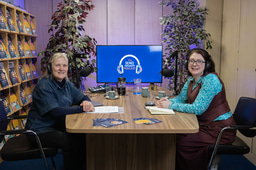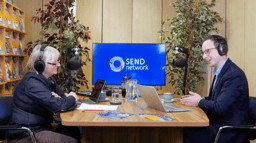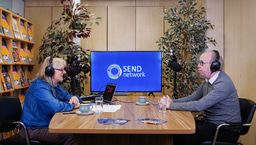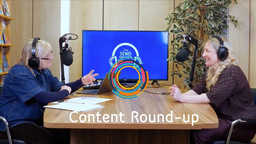Upcoming webinar: Identifying and supporting students with speech, language and communication needs

Identifying and supporting students with speech, language and communication needs. Thursday, April 18 @ 4pm to 5pm:
Click here to register for free to attend this webinar.
Around 1 in 10 children and young people are affected by long-term and persistent speech, language, and communication needs (Public Health England, 2020). However, research suggests that as many as 40% of young people with SLCN are going unidentified (Communication Trust, 2014).
Furthermore, 8 in 10 children with emotional and behaviour disorders have unidentified language difficulties (Hollo et al, 2014).
The impact on education is clear: Just 15% of pupils with identified SLCN achieve the expected standard in reading, writing and mathematics in year 6 (compared with 61% of all pupils) and just 20% of pupils with SLCN get a grade 4 or above in English and maths at GCSE (compared with 63.9% of all pupils) (ICAN & RCSLT, 2018).
Some SLCN are short term and can be addressed through effective early intervention. Others are more permanent and will remain with a person throughout their childhood and adult life.
In this webinar for teachers and school leaders working in both the primary and secondary phases, our expert panel will discuss the barriers to education and social development that SLCN create and how we can help our pupils to overcome these.
We will discuss the prevalence of SLCN, especially since Covid, and the extent to which these needs go unidentified and undiagnosed.
We will discuss how teachers and school staff can spot the signs of unidentified SLCN and what steps we can take to support our pupils.
The webinar will feature case studies from a primary and a secondary school, looking in depth at the work they do to identify and support SLCN and what lessons they have learned along the way.
It will also include an audience Q&A and the session will be available afterwards to watch on catch-up.
The webinar is being organised by Headteacher Update with our sister brands SecEd, Children and Young People Now, and the SEND Network in partnership with Speech and Language Link.
Meet our guests
- Jean Gross CBE is an independent consultant and author of many best-selling books and articles about children’s issues. She was formerly the government’s communication champion for children and has led many national initiatives aimed at improving the learning, attainment, and wellbeing of disadvantaged children and those with SEN.
- Jo Lamb has been a specialist SEN teaching assistant responsible for SLCNs at a primary school in Oxfordshire for two years. Prior to this, she worked in a variety of roles in early years and primary settings, supporting children with a range of communication needs. She holds a Master’s degree in inclusive education and has a particular interest in SLCN. She has significant experience running early intervention and support programmes for SLCN children including screening pupils.
- Secondary specialist: Details TBC
- Louise Burton is an experienced speech and language therapist and research lead for Speech and Language Link. Prior to working with the company, she worked in the NHS as a therapist in mainstream and specialist provisions, both primary and secondary. Louise leads on research and evidence for Speech and Language Link, including running research trials and ensuring their packages are really working for schools and pupils.
The webinar will answer key questions:
- What are speech, language and communication needs?
- How common are they at different ages or phases of education (primary/secondary)?
- What barriers do SLCN create to learning and engagement in the classroom, to social development, and to pupil wellbeing?
- To what extent do SLCN go unidentified and undiagnosed?
- What signs can we look out for in the classroom and wider school environment that show a pupil may have SLCN?
- What is considered best practice for supporting pupils with SLCN? Both at key stages 1 and 2 and at key stages 3 and 4?
Our webinar partners
Speech & Language Link develops innovative and award-winning support packages for children with SLCN. At primary level, Speech Link and Language Link empower SENCOs, teachers and teaching staff in their work with SLCN and help these professionals to identify the need for further support where required through screening, intervention, and staff training.
Meanwhile, Secondary Language Link is a comprehensive package for supporting students with SLCN. It combines a robust standardised assessment, with planned and fully resourced targeted small group interventions and a staff training toolkit. This enables secondary schools to identify and support the language and communication needs of key stage 3 students.
For more information, visit https://speechandlanguage.info/
References
- Communication Trust: Talk of the Town: Evaluation report, 2014.
- Hollo, Wehby & Oliver: Unidentified language deficits in children with emotional and behavioral disorders, Exceptional Children (80,2), 2014.
- ICAN & RCSLT: Bercow: 10 years on, 2018.
- Public Health England: Best start in speech, language, and communication: Supporting evidence, 2020.





Please sign in or register for FREE
If you are a registered user on SEND Network, please sign in